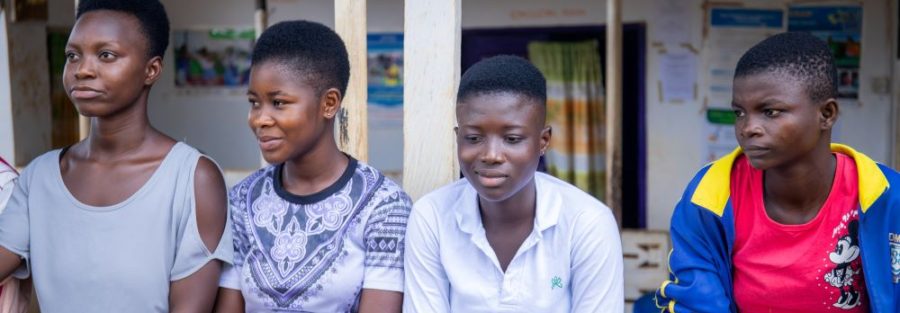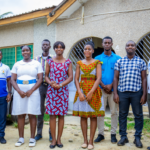A Reflection from the Adolescent West Africa Gender Transformative and Responsive Research (AdoWA -GTR) Findings
Across Ghana, adolescents are navigating a health system that often fails to meet their most basic emotional and physical needs. While national policies and global commitments affirm the right of every adolescent to health, dignity, and support, the realities on the ground tell a different story. Research conducted across four districts in Greater Accra reveals a web of challenges that prevent adolescents from accessing safe, respectful, and responsive health services.
What Are Adolescents Telling Us?
“We don’t really go there”: Broken Confidentiality in School-Based Counselling
Confidentiality is the foundation of any trusted health service, especially for adolescents dealing with sensitive mental or sexual health concerns. Yet, in-school adolescents repeatedly expressed fear that what they say in counselling sessions might be shared with other adults or peers.
“Sometimes, you tell the counsellor about your problems, but maybe the counsellor will think, if she tells the house mistress, she’ll help you. But that house mistress might tell someone else and suddenly your secret spreads. Even your friends hear about it. So we don’t really go there” – (FGD, In-School Adolescent, Girl)
This fear results in a silencing effect, especially for girls who may want to talk about issues that cause stress, anxiety, depression, and other sexual and reproductive health concerns. Without trust, girls internalize their distress, which may lead to deeper mental health struggles, academic withdrawal, or risky behaviours. If adolescents cannot confide in a counsellor without fear, it becomes nearly impossible to detect or prevent early signs of mental health issues, abuse, or reproductive health risks.
“It’s the life over there”: Long Wait Times, Poor Prioritization, and Systemic Disrespect
For out-of-school adolescents, navigating public health facilities is often a disheartening experience. Long wait times, poor communication, and perceived favouritism discourage them from seeking care altogether.
“You go to the hospital at 6 in the morning and come back at 6 in the evening. Even if you came first, someone else might come late and still bypass you to the folder room. That’s just how it is” – (FGD, Out-of-School Adolescent, Boy)
These adolescents report feeling invisible and powerless. They wait for hours with no information, no guidance, and no assurance that their concerns will be addressed. For many, this is enough reason to never return to the facility. The challenges go beyond wait times. Others include:
- Unfriendly staff behaviour discourages follow-up visits
- Lack of triage protocols means adolescents are not prioritized even for urgent issues
- Cultural judgments by nurses or staff may shame adolescents, especially girls, for asking about contraceptives or STI treatment
Health systems that are unwelcoming or indifferent teach adolescents that their wellbeing is not a priority. This discourages early care-seeking, worsens health outcomes, and increases the risk of untreated infections, pregnancies, or mental health issues.
“There’s nowhere to talk”: Lack of Dedicated, Adolescent-Friendly Spaces
At many health facilities, services are designed with adults in mind. Adolescents, especially girls, feel like intruders in spaces that were not built to accommodate their unique health needs.
“Facilities don’t always have designated places for adolescent services. They use the offices for everything else. So even where to sit and talk privately with an adolescent is a challenge”- (FGD, District Health Management Team)
Without private spaces, adolescents are forced to speak in open areas, hallways, or in rooms shared with other patients. For girls, this is especially concerning when the conversation involves:
- Contraceptive needs
- Menstrual or bodily discomfort
- Experiences of sexual assault
- Mental health struggles
These gaps reinforce a sense of shame and discomfort. Girls often choose not to speak up at all rather than risk being overheard, misjudged, or exposed. Privacy and dignity are not luxuries in adolescent health—they are essentials. If we want young people to feel safe enough to seek care, we must create environments that signal safety, trust, and confidentiality
How Did We Uncover These Issues?
This was no desk review. The insights emerged from direct, meaningful engagement with adolescents, health workers, and policy actors:
- 20 Focus Group Discussions with in-school and out-of-school adolescents
- 27 “Rich Pictures” drawn by adolescents to illustrate their health journeys
- 64 hours of observation at school clinics, capturing everyday realities
- 4 Focus Group Discussions with District Health Management Teams
- 18 in-depth interviews with key stakeholders at national and district levels
By centering adolescent voices, the AdoWA project not only diagnosed systemic gaps, it revealed lived experiences that demand responsive action.
What Needs to Change?
To respond to these challenges in a transformative and sustainable way, we recommend the following:
- Build adolescent-friendly spaces at health facilities that ensure privacy, respect, and confidentiality.
- Train school counsellors and health staff in adolescent-centered care, with a focus on confidentiality, empathy, and non-judgmental service.
- Introduce adolescent triage systems at health centers to reduce wait times and prioritize urgent cases.
- Institutionalize feedback mechanisms so adolescents can safely report negative experiences and suggest improvements.
- Strengthen implementation of Ghana’s Adolescent Health Policy, ensuring that every district translates policy into practice with adequate resources and monitoring.
Conclusion: Are We Listening to Adolescents, or Just Talking About Them?
Adolescents across Ghana are asking for care that is respectful, confidential, and safe. They are not asking for miracles but dignity, privacy, and attention. It’s time we listened. We believe that real health system transformation begins when we center the voices of those most affected. Adolescents deserve systems that see them, hear them, and care for them.



